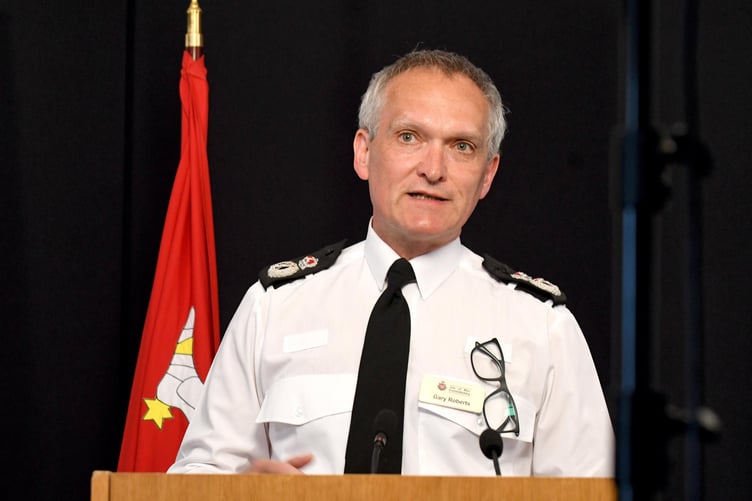The Chief Constable has written a public letter to the Isle of Pride committee, seeking to ‘reset’ the relationship between the police and the lesbian, gay, bisexual, transgender and queer (LGBTQ) community.
In it, Gary Roberts ‘acknowledges that the police must always uphold the law but apologises for the way that this was sometimes done in relation to a law that at the time criminalised homosexuality’.
He says in the opening sentence that it is ‘in many ways the most difficult letter that I have had to write in a lifetime of public service’
The police state that the 2,250-word document ‘offers a comprehensive assessment of how the police enforced legislation, which criminalised homosexual relations’.
‘It seeks to set in context how the police enforced the law and explains that police officers had no choice but to carry out the wishes of Tynwald,’ the force adds. Among those from the LGBT community to have reacted to the letter is Alan Shea, who became well-known for his iconic Tynwald Day protest against the island’s anti-homosexuality laws in 1991.
Mr Shea said ‘a big thank you’ to Mr Roberts for making the statement, adding: ‘Myself and others have accepted this apology, as we lived through these dark days most of you never experienced the hell we went through, after a long time of campaigning for this we have received it.’
Pride organiser and MHK Clare Barber, to whom the letter is addressed, also issued a response on behalf of Isle of Pride, saying that ‘clearly much time and thought’ had gone into it.
‘There is still much to be done to achieve transformative change; to safeguard LGBTQIA+ rights, strengthen relationships with the Isle of Man Constabulary and ensure our island continues on its path from being a once fractured to an inclusive community free from marginalisation, discrimination and stigma,’ a statement adds.
In Mr Roberts’ letter he writes about the complexity of an ethical question involving historic legislation: ‘As someone who has taken an oath to enforce the law, I cannot as a matter of principle apologise for the act of law enforcement,’ he says.
‘Police officers cannot choose which laws to enforce, they cannot have an opinion on the rightness or virtue of legislation’.
He adds that ‘the laws, as they stood (in the 20th century in the island), were likely to have had the support of the majority of the population when they were first passed and for a large part of their time on the statute books’.
‘I mention this not as an excuse, but simply to provide context,’ Mr Roberts writes, before including a quote from L.P. Hartley – “The past is a foreign country, they do things differently there”.
The Chief Constable goes on to talk about how he has ‘helped drive cultural change’ in the force over the past 15 years, which he now describes as ‘tolerant, diverse and inclusive’.
Also highlighted is the help of the police force’s inclusion scrutiny group, of which some members are from the LGBTQ community, doing work like acting as assessors in police recruit assessment centres, having ‘a real say in the selection of police officers’.
Mr Roberts states that he has ‘been particularly proud of the work that we have done to help young people in the LGBTQ+ community’, and the things he knows his officers have done to protect some individuals from ‘abuse, hatred and discrimination’.
The decision by the Pride committee to not allow police officers to take part in the first ever Pride event last summer ‘saddened’ him, with Mr Roberts adding that younger gay, lesbian and bisexual officers were disappointed to have not been able to take part.
‘It is a matter of deep and lasting regret to me that people in our community, some of whom were criminalised because of their sexuality, feel that the way that the police treated them was so profoundly wrong as to make them fear, distrust or even hate the constabulary,’ Mr Roberts concludes.
The full letter can be viewed on the police website.

.jpeg?width=209&height=140&crop=209:145,smart&quality=75)


